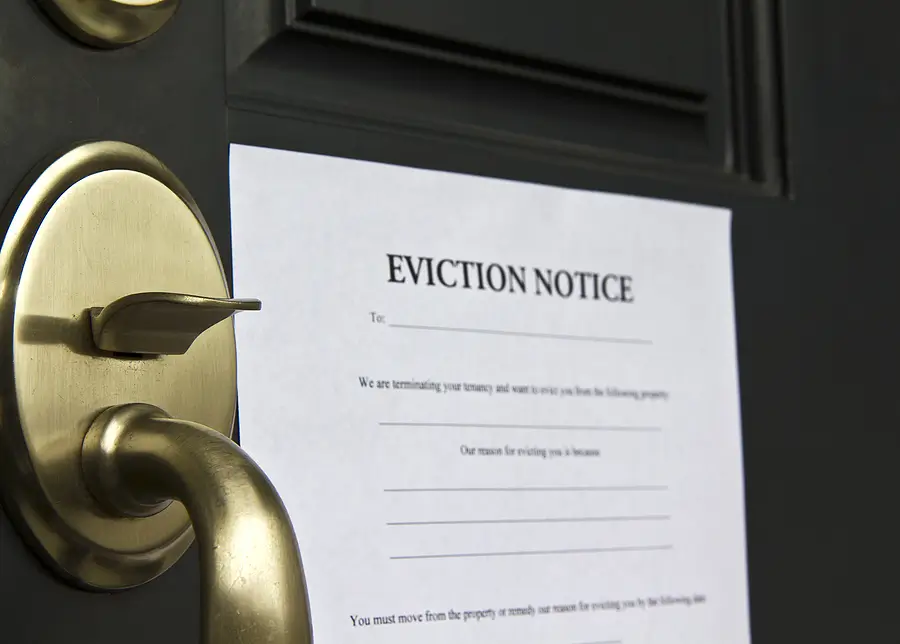Evictions are never an easy part of property management, but sometimes, they’re necessary. If you’re a landlord in College Station, TX, understanding the eviction process can help you protect your rental property and make informed decisions.
This guide will walk you through each step of the eviction journey in Texas, so you’ll know exactly what to expect if you ever have to evict a tenant.
Step 1: Start with Proper Notice
The first step in any eviction process in Texas is to give the tenant a written notice to vacate. Texas law requires that you, as the landlord, provide a proper notice before taking further steps. This written notice can be handed to the tenant, posted on the main entry door, or sent by certified mail with a return receipt.
Most landlords start with a three-day notice to vacate, especially in cases of nonpayment or lease violations. This notice period can vary depending on the lease agreement or specific circumstances like certain federal programs that provide reasonable accommodations.
Giving proper notice ensures that tenants have the opportunity to resolve the issue by paying rent or vacating the rental unit.
Step 2: Filing an Eviction Lawsuit
If the tenant does not vacate the property after the notice period, the next step is to file an eviction lawsuit in the justice court. This is also known as a forcible detainer suit. As the landlord, you’ll need to submit an eviction petition, detailing why you’re seeking eviction.
Reasons may include lease violations, failure to pay rent, or other legal causes stated in the rental agreement.
Filing an eviction suit requires filing fees, and the case will then be scheduled for an eviction hearing. This is where the court rules on whether you, as the property owner, have grounds to evict the tenant.
If the tenant disagrees with the eviction suit, they can file a written answer with the court, which may include tenant defenses. These defenses can range from claiming self-help evictions to disputing issues like necessary repairs or normal wear and tear.
Step 3: Preparing for the Eviction Hearing
The eviction hearing is your chance to present your case to a judge. As a landlord, you should be prepared with all relevant documents, including the rental lease agreement, eviction notice, and proof of any lease violations. You may also want to bring in witnesses or supporting evidence to strengthen your case.
During the hearing, the tenant may argue tenant defenses or claim that they have fulfilled the lease terms. The judge will review the evidence and rules based on the Texas property code and local or federal rules. If the court rules in favor of the landlord, they will issue a final judgment allowing you to proceed with the eviction.
Step 4: Obtaining a Writ of Possession
Once you have a court ruling in your favor, the next step is to obtain a writ of possession. This document allows you, as the landlord, to legally reclaim the rental property. However, you cannot forcibly remove the tenant yourself. A court official, often a county sheriff, is responsible for delivering the writ and overseeing the tenant’s removal from the premises.
When the writ of possession is issued, a court official delivers it to the tenant, usually with a deadline for vacating the property. If the tenant remains after this deadline, the county sheriff can forcibly remove them. In such cases, any tenant’s property left behind may need to be stored or disposed of according to Texas law.
Common Reasons for Eviction in Texas
There are various legal reasons why landlords in Texas may seek to evict a tenant. Here are some of the most common ones:
- Nonpayment of Rent: If the tenant fails to pay rent on time, you can start the eviction process.
- Lease Violations: Violations like illegal activities or property damage are valid grounds for eviction.
- Holdover Tenant: If a tenant remains on the property after the lease period ends without renewal, they become a holdover tenant.
- Other Lease Terms Violations: If the tenant violates specific lease terms, such as having unauthorized pets or engaging in disruptive behavior.
Tenant Defenses in Court
Sometimes, tenants may raise defenses to avoid eviction. They may claim that they were denied reasonable accommodations or that the landlord failed to perform necessary repairs on the rental unit. Tenants may also cite issues like discrimination, retaliation, or breaches of federal rules.
In such cases, the tenant may bring in a Texas tenant advisor or a legal professional to represent them. It’s essential to be prepared with accurate records and proof that you followed all necessary steps and procedures required by Texas law.
Avoiding Eviction Issues in the Future
While eviction is sometimes necessary, it’s usually best to avoid it if possible. Here are some tips to help you reduce the need for evictions:
- Tenant Screening: Proper screening can help you find responsible tenants who will follow the rental lease agreement.
- Clear Lease Agreements: A well-written lease agreement can set clear expectations and make it easier to enforce rules if a tenant fails to comply.
- Communication: Addressing issues with tenants early on can prevent misunderstandings and reduce the chances of needing to be evicted.
At Texas Prime Real Estate, we understand that managing a rental property can be challenging, especially when it comes to evictions.
Our team of experienced property managers is here to guide you through each step, making sure you comply with all Texas property code requirements and handle the eviction process professionally.
Ready for Stress-Free Property Management?
Handling an eviction isn’t something you need to face alone. At Texas Prime Real Estate, we specialize in property management services that make your job easier. Whether you’re dealing with a tenant’s stay that has extended beyond the initial notice period or want help drafting a solid rental lease agreement, we’re here for you.
Visit our Contact Us page or explore our Eviction Protection service to learn how we can support you. Let’s work together to keep your property profitable and well-maintained.
Reach out to us today and let us handle the complexities of property management so you can enjoy peace of mind.



